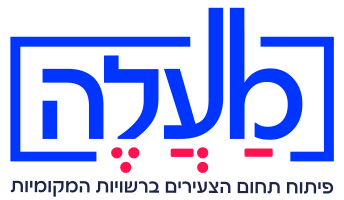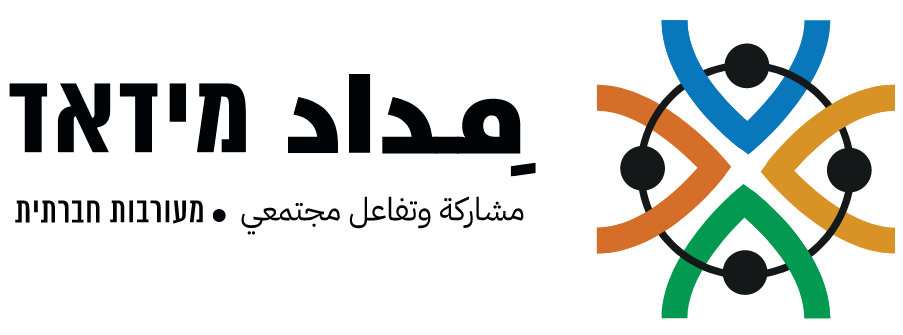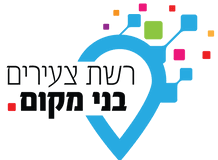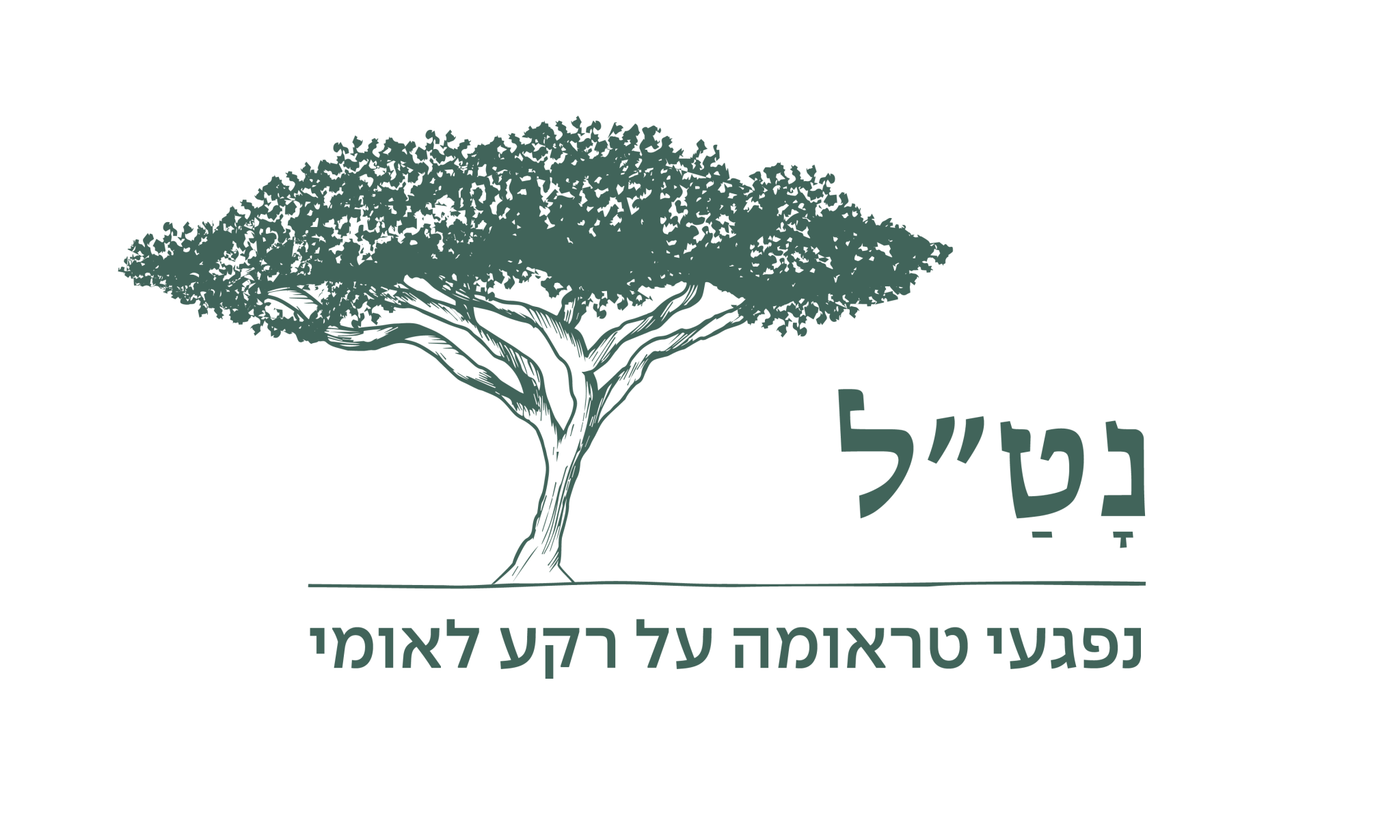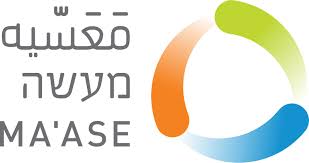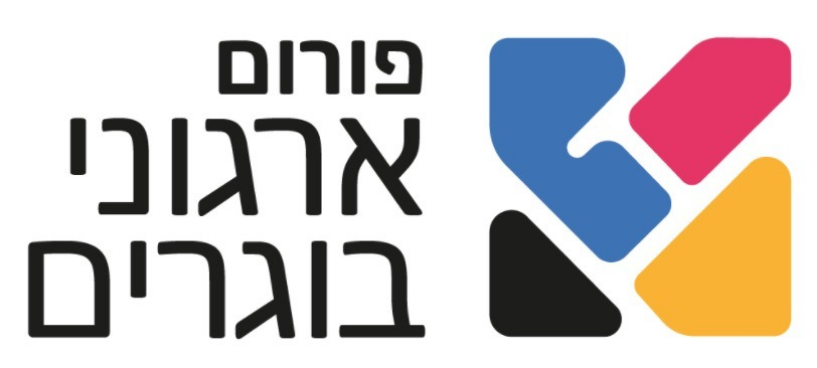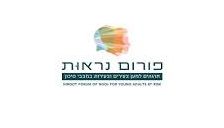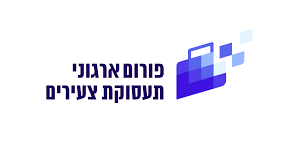פתיח
תקופת הצעירוּת – גילאי 18–30 – מזמנת אתגרים מגוונים לצד הזדמנויות אדירות. הדור הצעיר הוא דור האזרחים והמנהיגים של היום ושל המחר. כדי להבטיח שגשוג וצמיחה של החברה הישראלית במישור החברתי, הכלכלי והסביבתי בהווה ובשנים הבאות, יש להפנות זרקור לאתגרים ולהזדמנויות הייחודיים לקבוצת הגיל הזו.
במשך שני עשורים, קרן גנדיר פעלה באופן אסטרטגי בשדה הצעירים בישראל. הפעולות שיזמה הקרן נועדו לקדם שיתופי פעולה רב־מגזריים ולהרחיב את ההתמקצעות בתחום, בין היתר באמצעות תמיכה בארגוני חברה אזרחית העוסקים בעשייה חברתית וערכית. הקרן פעלה ליצירת "כלכלת פתרונות" בתחום הצעירים בישראל: רשת של חיבורים בין גופים מקצועיים מכלל המגזרים, הפועלים במשותף ליצירת פלטפורמות ומענים מיטביים עבור צעירים ואיתם.
רקע – על תקופת הבגרות הצעירה
הדור הצעיר של ימינו כבר הוכיח, ועדיין מוכיח, כי יש לו רצון ויכולת לגלות אחריות ולהשפיע על סביבותיו בהקשר החברתי, הכלכלי והסביבתי, לא רק לטובת האינטרסים שלו עצמו, אלא גם למען הכלל.
בתקופה שבין גיל 18 ל־30, צעירים וצעירות נדרשים לקבל החלטות מכריעות, שיעצבו את עתידם במגוון תחומי החיים: גיבוש הזהות וקבוצות ההשתייכות שלהם, בחירת מסלול השכלה וקריירה, הקמת משפחה, דיור עצמאי ועוד. מאפיין נוסף של תקופה זו הוא פיתוח דפוסי השתתפות אזרחית ומעורבות החברתית.
קבלת החלטות מיטביות עבור הצעיר.ה היא משימה מרכזית בתקופה זו, ולהחלטות אלו יש השלכות ארוכות טווח על חייו של הפרט, כמו גם על כלל החברה. אתגרי המציאות פוגשים את כולנו, אך הם משפיעים ביתר שאת על צעירים. כחברה, יש לנו אחריות לפעול עם כלל הצעירים בישראל ולמענם, ובפרט לתמוך באלו המתמודדים עם מיעוט הזדמנויות וחסמים מובְנים. עבורם, מרחב הבחירה עלול להיות מצומצם יותר, מה שעשוי להקשות עליהם לממש את יכולותיהם ושאיפותיהם.
התפתחות שדה הצעירים בישראל
בעשור האחרון חלו תמורות נרחבות בשדה הצעירים, לרבות הקמת רשות צעירים ממשלתית ואגפי צעירים במספר משרדי ממשלה. ברשויות המקומיות מכהנים בעלי תפקידים המחזיקים בתיק צעירים, הוקמו מרכזי צעירים ויחידות צעירים, ורשויות רבות כבר אימצו אסטרטגיה רשותית לתחום. ארגוני חברה אזרחית מפתחים ומפעילים עשרות תוכניות לקידום השתתפות ומעורבות חברתית של צעירים, ויוצרים מענים עבורם במגוון גדול של תחומים, בין היתר סביב צומתי חיים של צעירים.
מתוך תפיסה כי השלם הגדול מסך חלקיו, בקרן מאמינים כי פעולה משותפת ומתואמת של ארגוני חברה אזרחית העובדים באותו תחום או עם אותה אוכלוסייה, עשויה להשפיע באופן נרחב ומעמיק, בנוסף על ההשפעה של כל ארגון בנפרד. מכיוון שפעולה משותפת אפקטיבית דורשת תשתית תפעולית יציבה וארוכת טווח, הקרן תומכת גם בפורומים תוך־מגזריים ורואה בהם פלטפורמה חשובה לחיזוק תחום הצעירים בישראל. פעילות הפורומים מאיצה את התמקצעות התחום, יוצרת מענים משותפים למספר ארגונים, מקדמת מדיניות ומייצרת תודעה ציבורית רחבה.
במהלך שנות פעילותה, עסקה הקרן בפיתוח תשתיות בשדה הצעירים, לרבות שותפות בפיתוח מערכת מידע רשותית, המאגדת נתונים רשותיים של צעירים ומנגישה ידע אקדמי ויישומי.
בשנת 2024 נפתחה התוכנית האקדמית הראשונה בתחום, בתמיכת הקרן – תואר שני בלימודי צעירות במכללה האקדמית תל אביב-יפו. למידע על התוכנית
ציוני דרך מרכזיים בהתפתחות תחום הצעירים בישראל
שנה אירוע
1994 נחקק חוק חיילים משוחררים והוקמו הקרן והיחידה לחיילים משוחררים במשרד הביטחון
1999 פרסום דו"ח מצב ההשכלה של צעירים והקמת תוכנית הישגים של המל"ג
2000 הקמת עמותת למרחב בידי קרן מוזס וולפוביץ, לתמיכה בצעירים חסרי עורף משפחתי
2002 הקמת "סטארט אפ" בבאר שבע, מרכז הצעירים הראשון בישראל
2004 הקמת קרן גנדיר
2008 כנס צעירים ראשון בבית הנשיא והצהרה על הקמת רשות צעירים לאומית
2009 מינוי סגן שר לענייני צעירים
2010 הקמת תנועת קהילות משימתיות של צעירים
2010 הקמת הפורום לקידום השירות האזרחי־לאומי ופורומים נוספים
2011 צעירים מובילים, משפיעים ומעורבים במחאה החברתית הגדולה
2011 הקמת אגף צעירים במשרד לפיתוח הפריפריה, הנגב והגליל
2012 הקמת קרן הזדמנות לקידום שירות לאומי ואזרחי
2016 ייסוד תוכנית יתד – התוכנית הלאומית לצעירות וצעירים במצבי סיכון
2017 הקמת רשות הצעירים במשרד לשוויון חברתי
2022 הקמת מיזם מעלה לקידום תחום הצעירים ברשויות המקומיות
2024 פתיחת התוכנית לתואר שני בלימודי צעירות במכללה האקדמית תל אביב-יפו
2024 השקת מערכת מידע רשותית המאגדת נתונים בתחום הצעירים
ציר זמן זה נבנה על בסיס הידע שנצבר בקרן ועל דעתה בלבד.
תמיכות
מיזמים ארציים
- מיזם מעלה
מיזם משותף של קרן רש"י, קרן גנדיר ורשות הצעירים במשרד הנגב, הגליל והחוסן הלאומי, לקידום תחום הצעירים ברשויות המקומיות. המיזם מתמקד בחיזוק יכולותיה של הרשות המקומית, כך שתוכל לתכנן וליישם מדיניות המבוססת על הבנת הצרכים המובחנים של צעירים, ויוצרת מרחב שמאפשר להם למצות את הפוטנציאל שלהם.
תוכנית הפיילוט של המיזם פועלת בעשרות רשויות מקומיות, ומעניקה להן ליווי וכלים מקצועיים לפיתוח תחום הצעירים בשטחן, גיבוש מדיניות רשותית ובניית תוכניות אסטרטגיות לתחום זה.
הפיילוט ישמש בסיס ללמידה ולהתרחבות לרמה הארצית, מתוך שאיפה להטמעת עקרונותיו בידי רשות הצעירים.
- מיזם מידאד
מיזם מידאד פועל לקידום השתתפות ומעורבות חברתית של צעירות וצעירים בחברה הערבית. במסגרת המיזם פועלות כ־16 קבוצות של צעירות וצעירים ברחבי הארץ, בהובלת ארגוני חברה אזרחית או רשויות מקומיות. המיזם מבוסס על שיח של אקטיביזם, מעורבות והשפעה מלמטה-למעלה, הן ברמה הארצית והן ברמה המקומית. הצעירות והצעירים המשתתפים במיזם רוכשים מיומנויות שיסייעו להם לעסוק באקטיביזם ולפתח כישורי מנהיגות, כדי שיוכלו לגלות אחריות ולחולל שינויים ברמה המקומית והארצית.
- רשת קהילות צעירים בני מקום
הרשת פועלת ביישובים שונים בפריפריה להצמחת קהילות משימתיות של צעירים וצעירות בני המקום. החיבור בין חברי הקהילה והעשייה הקהילתית שלהם מתהווים מתוך הקשר המיוחד והעמוק שלהם ליישוב שבו גדלו ובו הם בונים את עתידם. המיזם הוקם בשנת 2015.
כיום פועלות 13 קהילות בכל רחבי הארץ, ובהן חברים וחברות מכל חלקי החברה הישראלית, שלכולם משותף הרצון לחזק את חיי הקהילה ולשפר את איכות החיים ביישובם. הרשת מהווה בית מקצועי ורעיוני עבור הקהילות, היוצרות ביחד סיפור מקומי.
תוכניות
- נט"ל – מחלקת פיתוח אישי וקריירה
עמותת נט"ל (נפגעי טראומה על רקע לאומי) פועלת למען יצירת חברה ישראלית בעלת חוסן, אשר בה יחידים, משפחות וקהילות שנפגעו מטראומה על רקע לאומי מנהלים חיים טובים ובעלי משמעות.
נט"ל מתמחה במתן מענים וטיפול נפשי לנפגעי טראומה על רקע לאומי ולאלו הסובבים אותם.
מחלקת פיתוח אישי וקריירה בנט"ל מציעה מגוון מענים למי שמתמודדים עם פוסט־טראומה בעקבות השירות הצבאי או פעולות טרור, וזקוקים לעזרה בתחום התעסוקה או ההשכלה.
המענה המרכזי הוא אימון תעסוקתי מותאם טראומה, תוך התמקדות בחוזקות של המשתתף.ת, ושיפור מיומנויות שנפגעו כתוצאה מהאירועים הטראומטיים, בהתאמה אישית לכל משתתפ.ת.
- לינק 20
שותפויות אדמונד דה רוטשילד היא הזרוע החברתית של קרן אדמונד דה רוטשילד, הפועלת לצמצום פערים ולמתן הזדמנויות לצעירים מהפריפריה הגיאו־חברתית. בעמותה מאמינים כי השקעה באוכלוסיות אלו תתרום רבות לשוויון ולשינוי האקלים החברתי בישראל.
לינק 20 מבית שותפויות אדמונד דה רוטשילד, רשת של צעירים עם וללא מוגבלות, פועלת לקידום שוויון, גיוון וזכויות של אנשים עם מוגבלות, באמצעות חיזוק המנהיגות הדיגיטלית, רישות הצעירים למען קידום מטרות משותפות ופעילות במדיה החברתית לשינוי התודעה הציבורית. ברשת חברים צעירים עם וללא מוגבלות, מתוך הבנה כי שינוי חברתי הוא אינטרס משותף לחברה כולה.
- תכנית יסוד اساس
עמותת מרכז מעשה פועלת כבר יותר משני עשורים לקידום מוביליות חברתית־כלכלית בקרב צעירים וצעירות מהפריפריה, באמצעות מגוון תוכניות המתמקדות במעורבות והתנדבות, מאפשרות תהליכי התפתחות אישית ומעניקות הזדמנויות להשפיע.
תכנית יסוד اساس – תוכנית הכשרה למגזר משרתי הציבור בשיתוף אגף עתודות א' במשרד החינוך ובהובלת מרכז יסודות, מבית מרכז מעשה – שמה דגש על גיוון השירות הציבורי באמצעות הכשרת צעירות וצעירים מכלל החברה הישראלית.
התוכנית כוללת הכשרה קבוצתית וכן ליווי מקצועי לבירור מרחב העשייה האישי ולהשתלבות והתפתחות מקצועית בספֵרה החברתית והציבורית.
תכנית יסוד اساس היא ערוץ להזנת מצוינות לשירות הציבורי במסגרת התוכנית הלאומית 'עתודות לישראל'.
- מלגות לתלמידי תואר שני בלימודי צעירות
התוכנית לתואר שני בלימודי צעירוּת במכללה האקדמית תל אביב-יפו מציעה מסגרת עשירה של למידה, התמחות ומחקר בתחום ידע חדש לאקדמיה הישראלית. מטרת התוכנית היא להעמיק בידע על תקופת הצעירוּת (גילאי 18–35), ולהכשיר א.נשי מקצוע לחדשנות בכל הקשור להנעה, ניהול ותמיכה בצעירות וצעירים, לצד עיצוב מוצרים, מתן שירותים ועבודה יום־יומית איתן.ם ולמענן.ם.
קרן גנדיר שותפה במימון מלגות לימודים למשתתפי התוכנית.
פורומים
- פורום ארגוני בוגרים
פורום ארגוני בוגרים, שהוקם בשנת 2013, מאגד כ-40 ארגונים חברתיים המפעילים ארגוני וקהילות בוגרים. הפורום פועל לפיתוח וקידום הפרופסיה של ניהול קהילות בוגרים, מתוך אמונה ביכולתם של בוגרות ובוגרי תוכניות חברתיות לקדם את מטרות הארגונים בהם לקחו חלק, ולהשפיע ולקדם את החברה בישראל. כמו כן, הפורום מהווה פלטפורמה להיוועצות, למידת עמיתים ומעודד שיתופי פעולה בין ארגונים בשדה האזרחי. כל אלו, מהווים מכפילי כוח למיצוי מטרות רשתות וקהילות הבוגרים בישראל.
- נראוּת: פורום הארגונים למען צעירות וצעירים במצבי סיכון
הפורום מונה מעל 30 ארגונים חברתיים המלווים צעירים וצעירות במצבי סיכון. ארגונים אלה התאגדו במטרה להביא לשינוי חברתי, לקדם שיח ומודעות, וליצור שיתופי פעולה ומענים בשטח. לפורום 3 מטרות עיקריות:
א. קידום ושינוי מדיניות עבור צעירות וצעירים במצבי סיכון.
ב. חיזוק הפרופסיה בארגונים, באמצעות הכשרות קורסים, ניהול קהילות מקצועיות והנגשת ידע.
ג. הטמעת רגישות מגדרית ותרבותית בארגונים, בתכניות ובמענים בשדה.
- פורום ארגוני תעסוקת צעירים
- הפורום הוא הבית של ארגוני התעסוקה לצעירים בישראל. הפורום הוקם בשנת 2020, בעקבות משבר הקורונה, והוא מאגד כ־50 ארגוני חברה אזרחית הנותנים שירותים בתחום התעסוקה לרבבות צעירים בגילאי 18–35, מכלל חלקי החברה הישראלית.
- בבסיס פעולת הפורום עומדת התפיסה כי תעסוקה היא עוגן חברתי־כלכלי ברמת הפרט, החברה והמשק. כוחו של הפורום ביכולתו לקבץ את הידע הנצבר בארגונים השונים ולהפיצו, וכן לפעול לקידום מדיניות ומהלכים רוחביים. גם הגברת שיתוף הפעולה ומיצוי המשאבים בין הארגונים החברים וגם פיתוח הפרופסיה וקידום חדשנות בתחום.
- הקהילה לחוקרי צעירות
הקהילה לחוקרי צעירוּת הוקמה בשנת 2020 כדי ליצור מרחב לשיתוף בחשיבה ופיתוח גוף הידע והפרקטיקה על תקופת הצעירוּת. הקהילה שואפת לבנות רשת של חוקרות וחוקרים, ממגוון דיסציפלינות ונקודות מבט, וליצור הזדמנויות לדיאלוג ולעשייה משותפת בתחום של לימודי צעירוּת בישראל. הקהילה פועלת במסגרת המכללה האקדמית תל אביב-יפו, וכיום חברים בה 120 חוקרות וחוקרים.

